The 2nd Conference of the SocioDigital Lab for Public Policy (SDLab) took place on November 28 and 29, 2023, under the theme “Inclusive Territories for the Green and Digital Transition”. The event took place at the recently inaugurated Center for Technology Evaluation and Transfer, Iscte-Knowledge and Innovation.
With a diverse scientific program, the conference set out to bring together policymakers and experts exploring the critical intersection of the green and digital transitions, to promote discussion on the challenges, opportunities and innovative solutions needed for a sustainable and just future.
Specifically, after the opening session with the intervention of the Vice-Rector for Research and Technological Modernization Jorge Costa and a special participation by the Member of the European Parliament Sandra Pereira, environmental psychology expert Ricardo García Mira (University of A Coruña) spoke about the social impact of the energy transition in Europe. The guest speaker presented the results of the ENTRANCES project, which addressed this issue through a co-creation of knowledge approach, giving greater relevance to social aspects and public policies. Also on this day, the round table “How can the transition be just? Insights from the region of Sines” discussed how the energy and digital transition must consider social aspects to ensure not only sustainability but also justice and inclusion for different communities. In the round table “Vulnerable territories at the crossroads of transitions: digitalization, resilience and transformation”, the importance of considering the needs of different territories in this transition, with multidisciplinary contributions, was discussed. At the end of the day, the round table “A space for age: more sustainable, inclusive and healthy cities” addressed how urban planning must consider not only environmental aspects, but also aspects for the inclusion of diverse populations in the design of public space.
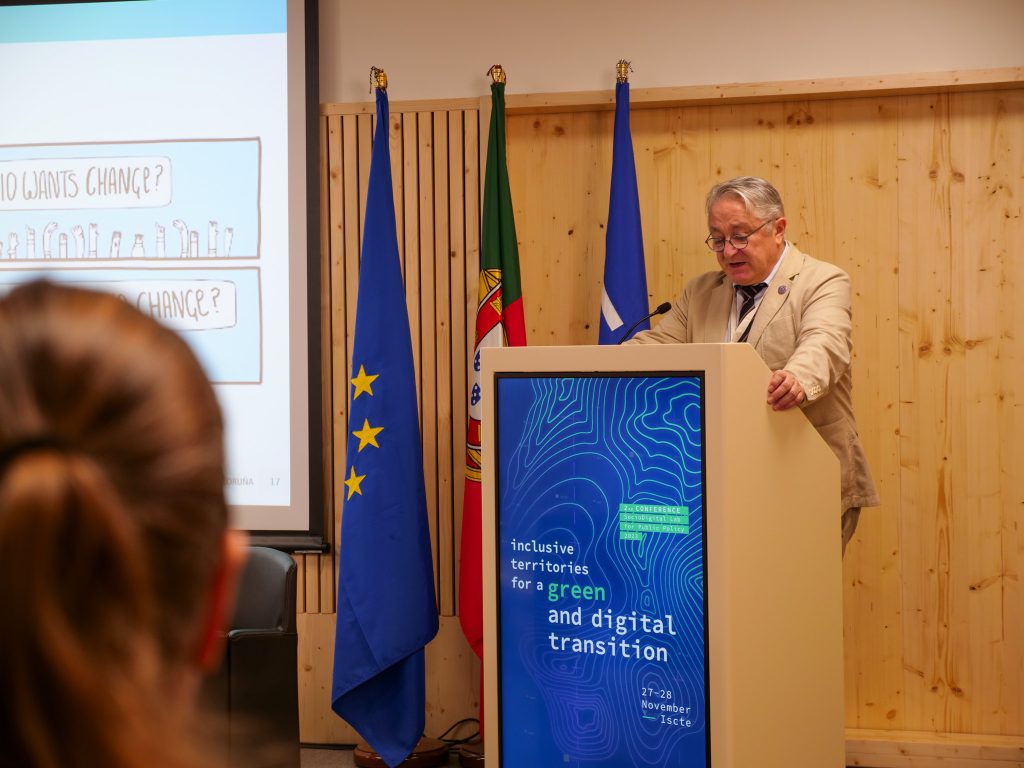
The second day of the conference was marked by a talk by UN Intergovernmental Panel on Climate Change (IPCC) member Patrick Devine-Wright (University of Exeter), who explored the relationship between social sciences, public policy and the impact on the environment and the climate emergency. The speaker presented the ACCESS project, but also case studies from the UK government and the IPCC. On this day, the topic “Green Transition and Populism: Challenges for Public Policies” was also discussed, namely aspects of global governance, and how existing policies actually reach people. Issues such as the environmental impacts of managing and recycling digital resources, the role of artificial intelligence in the digital transition, and what decisions should be made for a green digital transition served as a motto for the aspects discussed at the round table “Twin Green and Digital Inclusion in Territories”. Finally, the last round table of the event, “Inclusions and transitions: The cross-cutting challenges”, aimed to bring reflection on the cross-cutting approach that the transition to a sustainable and just future requires.
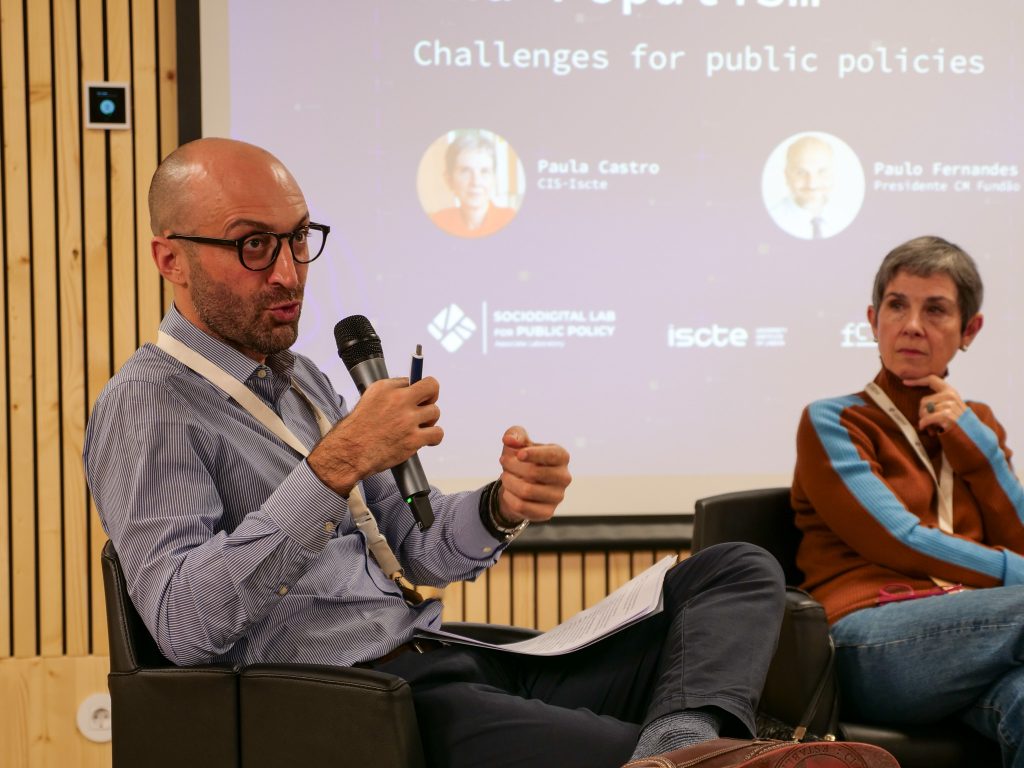
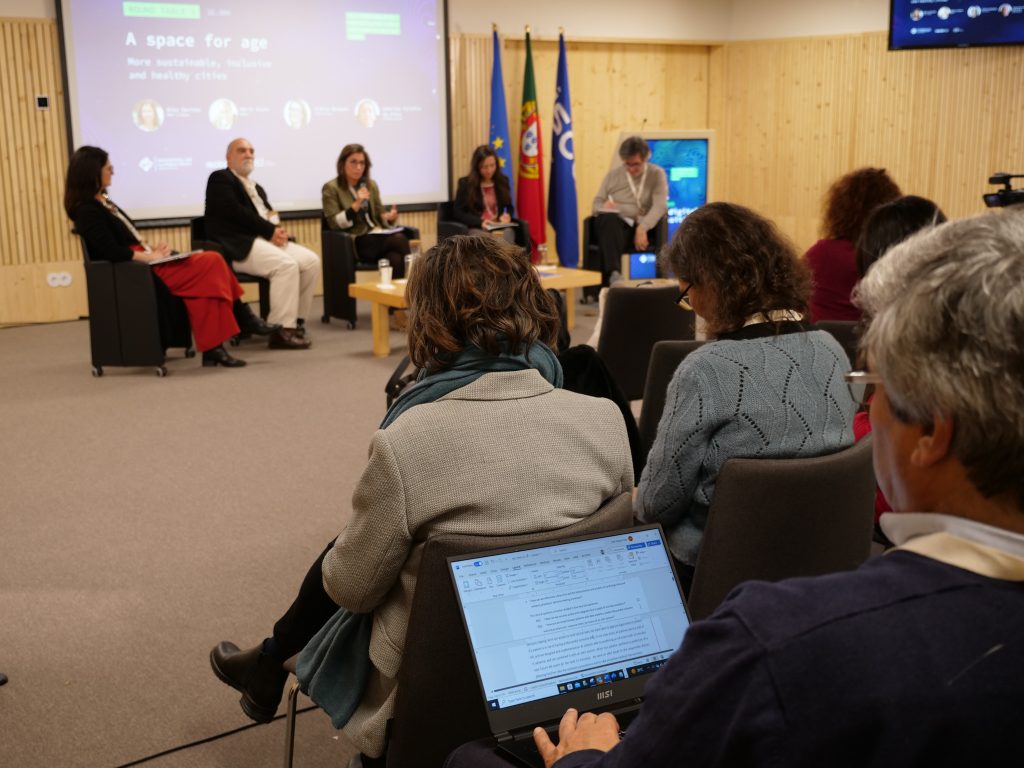
This second edition of the conference, which was organized by researchers Maria Assunção Gato (DINÂMIA’CET-Iscte), Mónica Meireles (BRU-Iscte) and Susana Batel (CIS-Iscte), co-coordinators of SDLab’s thematic line 1 “Regenerative Territories for Carbon Neutrality”, also had the logistical support of the science communication group COM’Investigar, which includes members of Iscte’s different research units.
The event was broadcast live on the SocioDigital Lab YouTube channel, where it is still available. As with the 1st SocioDigital Lab Conference, which resulted in a set of recommendations for public policy, a report on the implications of this second edition is also planned.
PROGRAMME
> 27 NOVEMBER | MONDAY
8h30 Reception of the participants
9h00 Conference opening
Welcome from the Rector Maria de Lurdes Rodrigues, from the Joint Chairpersons of the SocioDigital Lab, Teresa Patrício and Luísa Lima and from the Organizers, Maria Assunção Gato, Mónica Meireles and Susana Batel
Opening statement from Sandra Pereira, Member of the European Parliament
9h45 Keynote 1 – Ricardo Garcia Mira
Professor of Social Psychology at the University of Coruña, Spain; specialized in Environmental Psychology and member of the Parliament of Spain (2016-2019) as Spokesman for Climate Change of the Socialist Parliamentary Group in the Ecological Transition Commission.
11h00 Coffee break
11h30 Round Table 1
Thematic Line 1 – How can the transition be just? Insights from the region of Sines
Moderator: Susana Batel (CIS-Iscte)
Antonio Maria Pusceddu (CRIA-Iscte);
Bruno Candeias (SIEAP – Sindicato das Indústrias, Energia e Águas de Portugal);
Dora Fonseca (CoLABOR – Laboratório Colaborativo para o Trabalho, Emprego e Proteção Social);
Paulo Partidário (Direção Geral da Energia e Geologia)
13h00 Lunch
14h30 Round Table 2
Thematic Line 2 – Vulnerable territories at the crossroads of transitions: digitalization, resilience and transformation
Moderator: Renato Miguel do Carmo (CIES-Iscte)
Daniela Ferreira (IGOT, Universidade de Lisboa);
Francisco Simões (CIS-Iscte);
Hugo Pinto (FE-UALG);
Rosário Mauritti (CIES-Iscte)
16h00 Coffee break
16h30 Round Table 3
Thematic Line 3 – A space for age: more sustainable, inclusive and healthy cities
Moderator: Henrique Martins (BRU-Iscte)
Rita Jacinto (Project Manager at Plano de Acessibilidade Pedonal de Lisboa)
Mário Alves (Associação de Cidadãos Automobilizados, MUBI);
Sibila Marques (CIS-Iscte);
Catarina Ferreira da Silva (ISTAR-Iscte)
> 28 NOVEMBER | TUESDAY
8h30 Reception of the participants
9h00 Keynote 2 – Patrick Devine-Wright
Professor of Geography, University of Exeter, UK; Lead author of the IPPC working group III in the 6th Assessment Round on ‘Demand, Services and Social Aspects of Mitigation’.
Opening statement from Sandra Pereira, Member of the European Parliament
10h30 Coffee break
11h00 Round Table 4
Thematic Line 4 – Green Transition and Populism: challenges for public policies
Moderator: Cláudia Pereira (CIES-Iscte)
Paula Castro (CIS-Iscte);
Paulo Fernandes (Presidente da Câmara Municipal do Fundão);
Roberto Falanga (ICS)
12h30 Lunch
14h30 Round Table 5
Thematic Line 5 – Twin Green and Digital Inclusion in Territories
Moderator: Miguel Dias (ISTAR-Iscte)
Eunika Mercier-Laurent (University of Reims);
Paulo Simões (Executive Secretary of OESTECIM, Intermunicipal Community of the West);
Pedro Mateus das Neves (Founder and CEO of Global Solutions, PARTTEAM & OEMKIOSKS);
Nelson Batista (Councilor of the Municipality of Loures).
16h30 Round Table 6
Inclusions and transitions: the cross-cutting challenges
Moderator: Mónica Meireles (BRU-Iscte)
Catarina Roseta Palma (BRU-Iscte);
Susana Fonseca (ZERO – Associação Sistema Terrestre Sustentável);
Susana Guerreiro (SEYN – Sustainable Energy Youth Networks);
Vasco Rato (Câmara Municipal de Lisboa and ISTAR-Iscte)
17h30 Closing Conference
Vice-Rector of Iscte for Research and Technological Modernization, Jorge Costa
Maria Assunção Gato, Mónica Meireles and Susana Batel, Conference Organizers
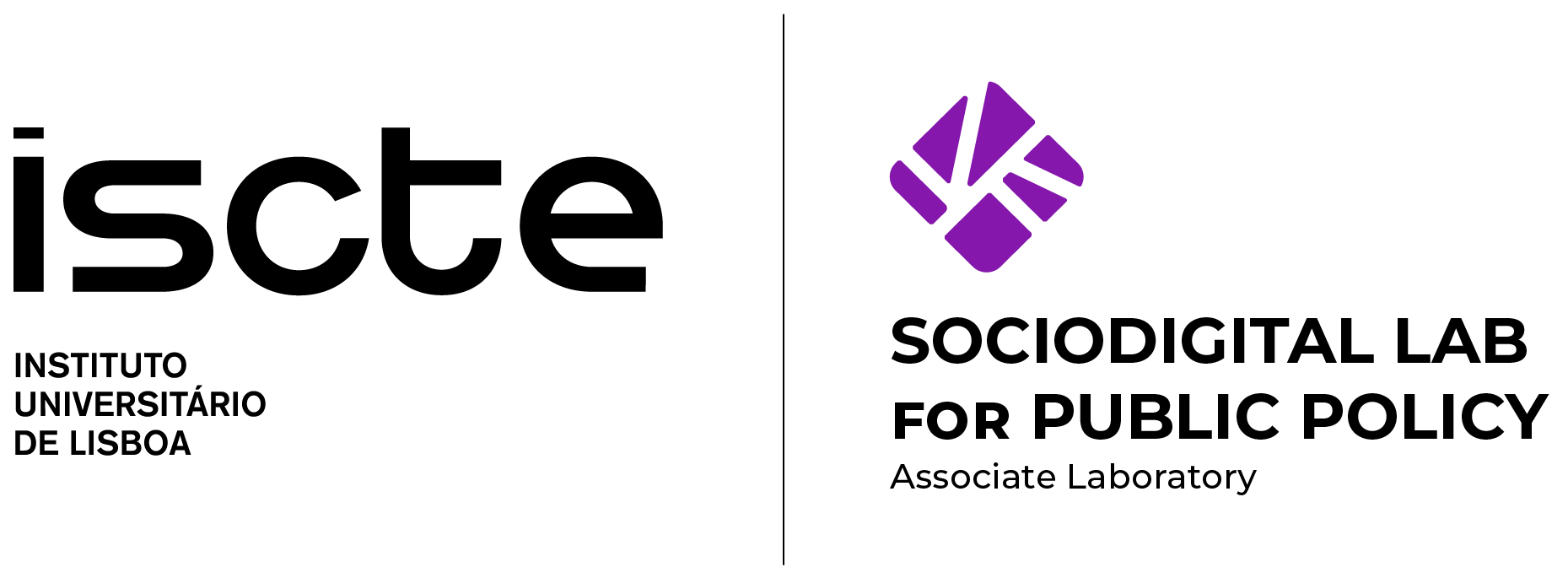
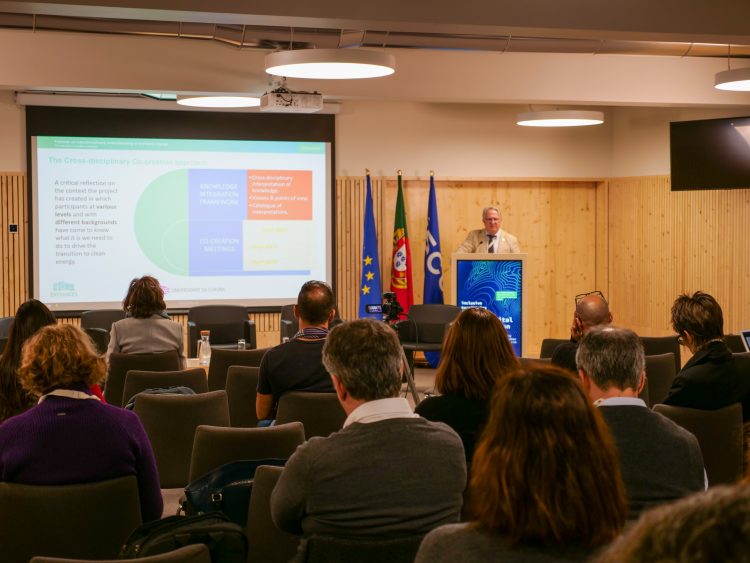
2 thoughts on “Green and digital transition discussed at Iscte”
Comments are closed.